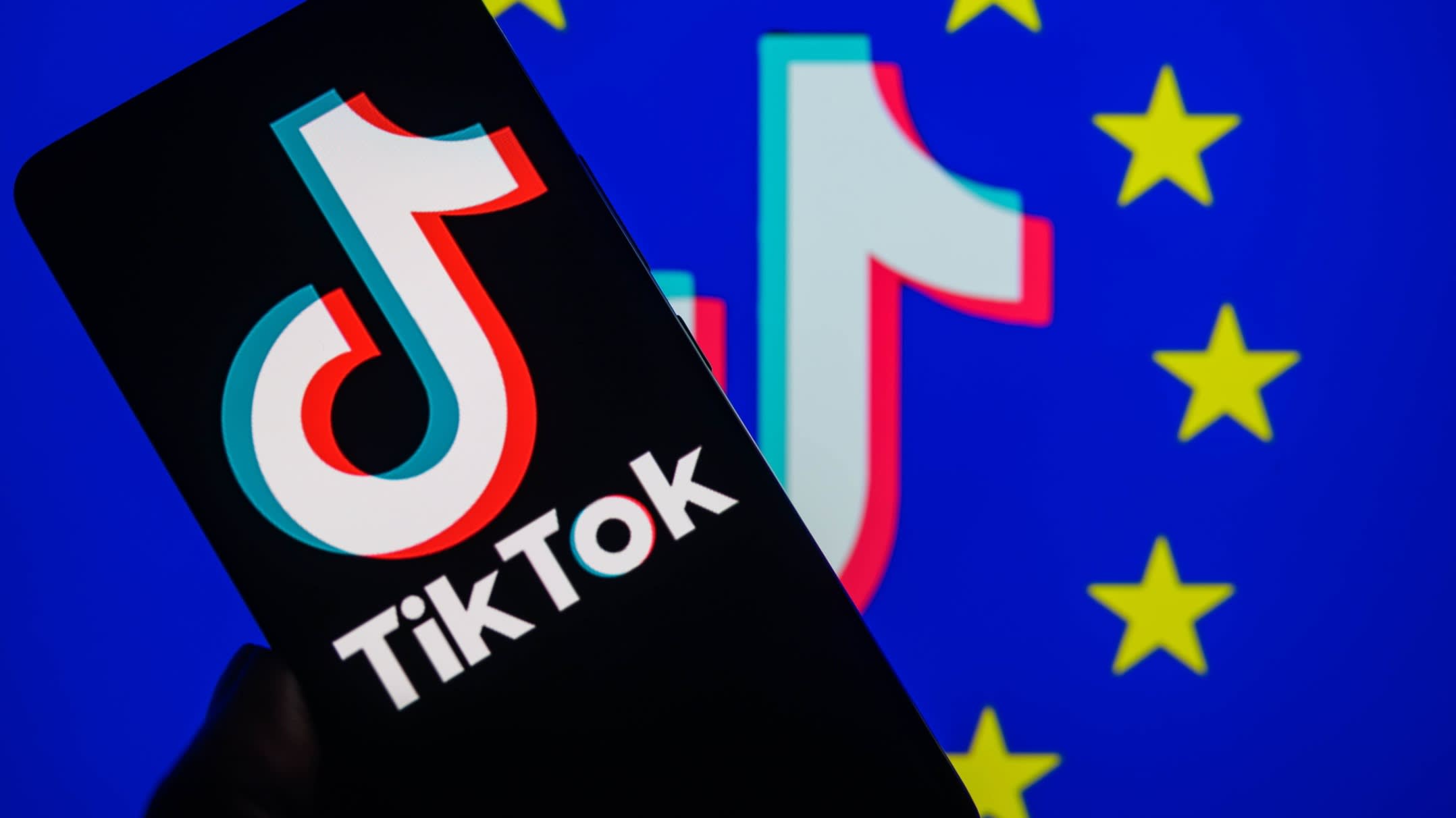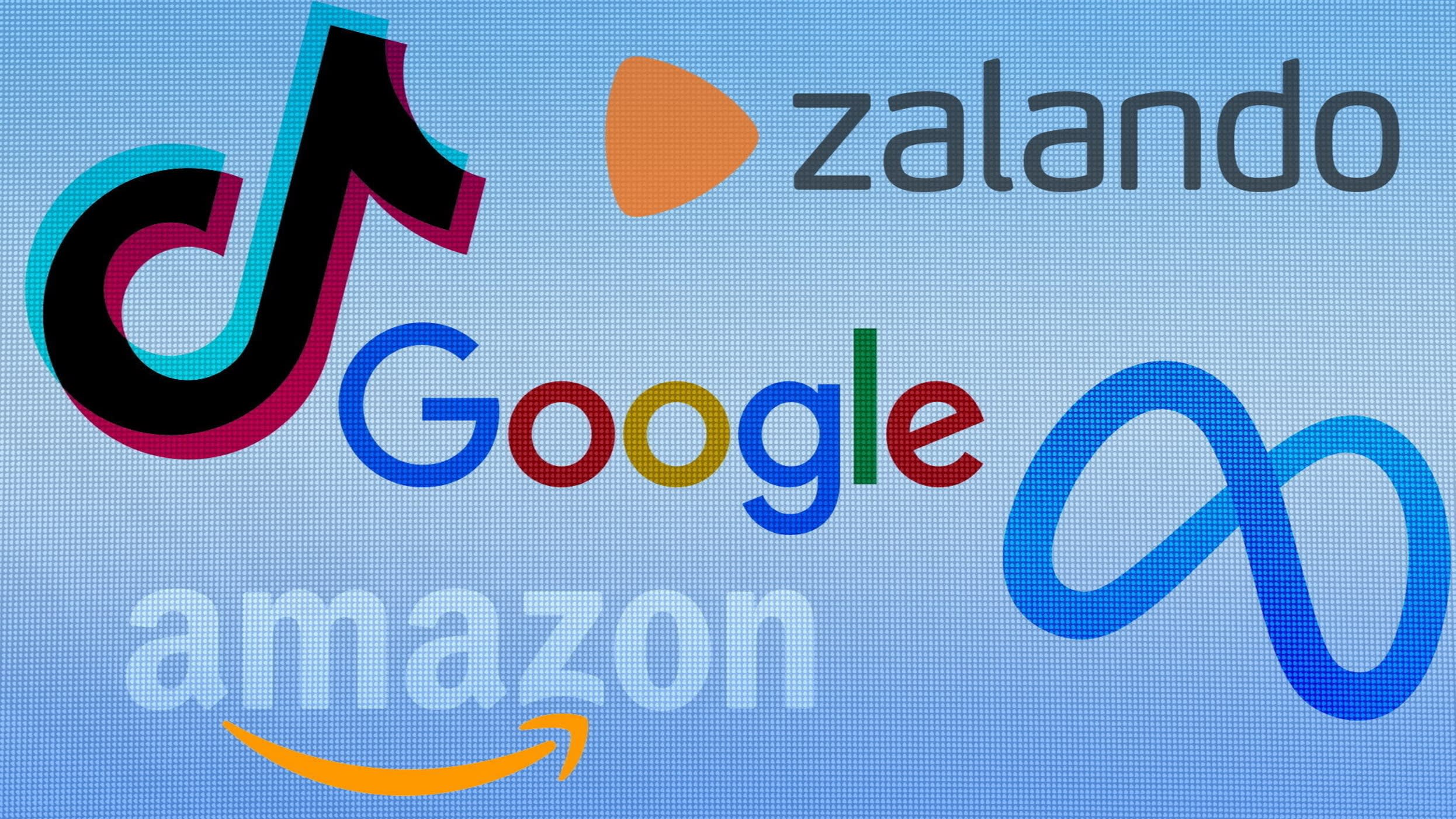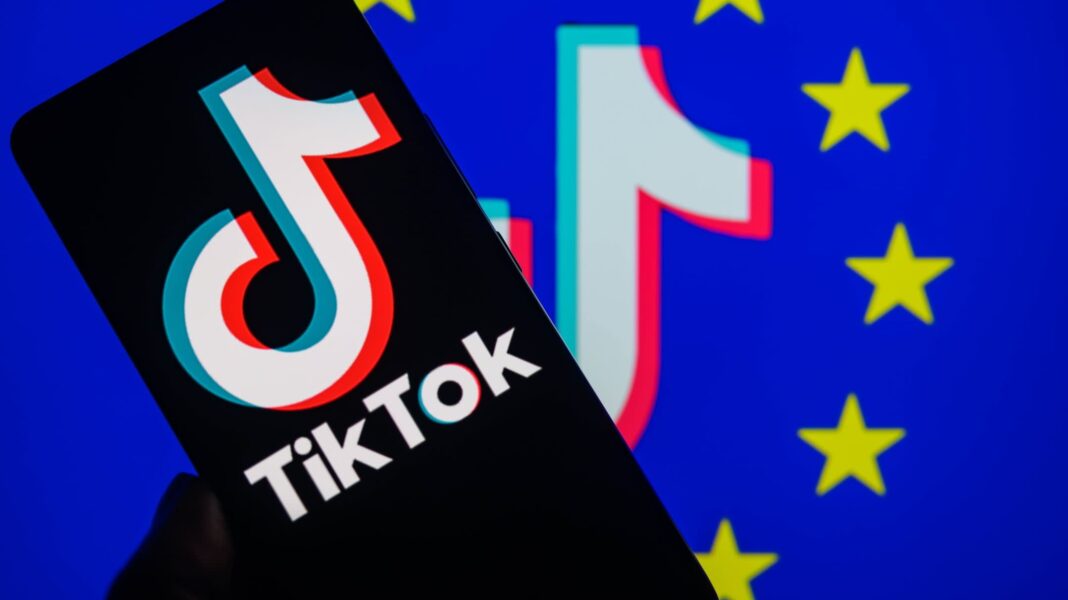Title: EU Takes a Stand: TikTok Faces the Music Over Online Content Regulations
Ah, the ever-evolving world of social media, where the line between reality and entertainment blur, and the youth’s fascination with sharing their lives unfolds in a tapestry of captivating content. In the midst of this digital tapestry, TikTok stands out for its ability to attract millions, captivate millions, and shape the future of online content.

However, amidst the dance challenge craze and humorous lip-syncing antics, the European Union (EU) has unfurled its regulatory sword, ready to quell any potential harm that online content may pose on its young audience. In a bold move aimed at establishing stricter guidelines for online content, the Financial Times recently reported that the EU is taking actions against TikTok for not adhering to rules on child safety and disinformation.

TikTok’s Response and Position on EU Regulations
TikTok’s statement on the EU’s concerns and actions
TikTok has responded to the European Union’s concerns regarding online content rules, stating that it is “committed to complying with the Digital Services Act (DSA) and all applicable laws and regulations.” The company emphasized its efforts to “ensure the safety and well-being of users” and to “protect minors online.” TikTok also highlighted its existing measures, such as age verification and parental controls, to address concerns around online safety.
In a statement, a TikTok spokesperson said, “We appreciate the European Union’s efforts to create a safer online environment and are committed to working with regulators to ensure that our platform meets their expectations.” The company has also pointed out that it has been engaging with EU regulators and other stakeholders to better understand their concerns and to provide input on the DSA.

Analysis of TikTok’s potential strategy to address EU regulations
Experts believe that TikTok’s strategy to address EU regulations will likely involve enhancing its content moderation capabilities and increasing transparency around its algorithms and data practices. This may include investing in more advanced AI-powered content moderation tools and providing more detailed information on its data collection and processing practices.
According to Dr. Sophie Sirock, a digital policy expert at the University of Amsterdam, “TikTok will need to demonstrate a clear understanding of the DSA’s requirements and show a willingness to adapt its platform to meet these standards. This may involve making significant changes to its content policies and practices, as well as investing in more robust content moderation and transparency measures.”

Discussion of the challenges TikTok may face in adapting its content policies to EU standards
TikTok may face several challenges in adapting its content policies to EU standards, including balancing the need to protect users from harmful content with the need to preserve free speech and creativity on the platform. The company will also need to navigate the complexities of complying with different regulatory regimes across the EU, while ensuring consistency in its approach.
- Content moderation challenges: TikTok will need to invest in more advanced content moderation capabilities to effectively identify and remove harmful content from its platform.
- Algorithmic transparency: The company will need to provide more detailed information on its algorithms and data practices to demonstrate compliance with EU regulations.
- Balancing free speech and safety: TikTok will need to strike a balance between protecting users from harmful content and preserving free speech and creativity on the platform.
Examination of other social media platforms’ responses to EU regulations
Other social media platforms, such as Meta and Google, have also been taking steps to comply with EU regulations. For example, Meta has announced plans to enhance its content moderation capabilities and increase transparency around its algorithms and data practices.
According to a report by Unionjournalism, “The EU’s regulatory efforts are likely to have a significant impact on the social media landscape, with platforms facing increased pressure to prioritize user safety and transparency.”
Implications and Future of TikTok in the EU Market
Implications of the EU’s actions on TikTok’s growth and market position in the EU
The EU’s actions are likely to have significant implications for TikTok’s growth and market position in the EU. The company may face increased costs and complexity as it adapts to the new regulatory regime, which could impact its competitiveness in the region.
According to analysts at Berenberg, “TikTok’s growth in the EU may be impacted by the new regulations, as the company may need to invest significant resources in compliance and content moderation. However, the company’s strong brand and user engagement may help it to maintain its market position.”
Analysis of the potential impact on TikTok’s user base and revenue in the EU
The potential impact on TikTok’s user base and revenue in the EU is significant, with some analysts predicting that the company’s growth may slow as a result of the new regulations.
- User base: TikTok’s user base in the EU may be impacted by the company’s ability to adapt to the new regulatory regime.
- Revenue: The company’s revenue in the EU may also be impacted, as advertisers and sponsors may be deterred by the increased complexity and costs associated with advertising on the platform.
- Advantages: Enhanced reputation and trust with users and regulators.
- Challenges: Increased costs and complexity associated with compliance.
Discussion of the advantages and challenges for TikTok as it navigates EU regulations
TikTok will face both advantages and challenges as it navigates EU regulations. On the one hand, the company’s commitment to compliance and transparency may enhance its reputation and trust with users and regulators.
On the other hand, the company may face significant challenges in adapting to the new regulatory regime, including increased costs and complexity.
Examination of other social media platforms’ potential impact on TikTok amid the EU regulations
Other social media platforms, such as Instagram and Snapchat, may also be impacted by the EU regulations. However, TikTok’s strong brand and user engagement may help it to maintain its market position.
According to a report by Unionjournalism, “The EU’s regulatory efforts are likely to have a significant impact on the social media landscape, with platforms facing increased pressure to prioritize user safety and transparency.”
Conclusion and Future of EU Regulation of Social Media Platforms
Summary of the main points and findings
The EU’s actions against TikTok over online content rules highlight the growing regulatory pressures facing social media platforms in the region. The company’s response and position on EU regulations will likely involve enhancing its content moderation capabilities and increasing transparency around its algorithms and data practices.
Analysis of the importance of balancing user rights and platform freedom in EU regulations
The EU’s regulatory efforts highlight the importance of balancing user rights and platform freedom. The regulations aim to protect users from harmful content while preserving free speech and creativity on social media platforms.
According to Dr. Sophie Sirock, “The EU’s regulatory efforts are crucial in ensuring that social media platforms prioritize user safety and transparency. However, it is also important to balance these efforts with the need to preserve free speech and creativity on the platforms.”
Discussion of the potential outcomes for other social media platforms facing similar regulations in the EU market
Other social media platforms facing similar regulations in the EU market may need to adapt their content policies and practices to comply with the new regulatory regime. The outcomes will depend on each platform’s ability to balance user rights and platform freedom.
- Compliance: Platforms will need to demonstrate compliance with EU regulations to avoid fines and reputational damage.
- Adaptation: Platforms may need to adapt their content policies and practices to meet the new regulatory standards.
Final thoughts on the growing role of media outlets like Financial Times in shaping EU regulations and media discussions on social media platforms
Media outlets like Financial Times play a crucial role in shaping EU regulations and media discussions on social media platforms. Their reporting and analysis help to inform policymakers, regulators, and the public about the key issues and challenges facing the social media industry.
According to a report by Unionjournalism, “The role of media outlets like Financial Times is essential in promoting transparency and accountability in the social media industry. Their efforts help to ensure that platforms prioritize user safety and transparency, while also preserving free speech and creativity.”
Conclusion
In conclusion, the European Union (EU) taking action against TikTok over online content rules has raised significant concerns regarding the platform’s adherence to safety guidelines and data protection laws. The decision, as reported in Financial Times, highlights the growing need for transparent and responsible social media practices, particularly among platforms with vast user bases and global influence.
The main arguments presented in the article revolve around the EU’s concerns regarding TikTok’s handling of user data, lack of transparency regarding data collection practices, and the platform’s role in promoting harmful content, particularly for young users. These concerns have led to a broader examination of online content regulations and data protection laws across the EU.
The implications of this action are far-reaching and multifaceted. Firstly, it emphasizes the importance of parent companies complying with the laws and regulations of the countries they operate in, ensuring that users’ rights are protected and online spaces are safe and secure. Secondly, it sheds light on the growing demand for data privacy awareness among users, who should be informed about the data collection practices of the applications they use and take proactive measures to protect their information.
In the future, the EU’s actions against TikTok may pave the way for stricter online content regulation and data protection laws across the region. This could potentially lead to a harmonized approach to addressing the challenges posed by social media platforms and the digital ecosystem as a whole. Furthermore, it raises questions about the role of tech giants in shaping public discourse and the responsibilities that these companies bear towards the well-being of their users.
As the article concludes, the EU’s actions against TikTok represent a significant step towards ensuring safer online environments and protecting the rights of European citizens. It also highlights the urgent need for policymakers, tech giants, and users to collaborate in tackling the complex challenges posed by the digital sphere. By demanding transparency, data protection, and responsible content moderation, we, as a society, can shape a future where technology benefits all, without compromising individual freedoms or undermining societal values.
